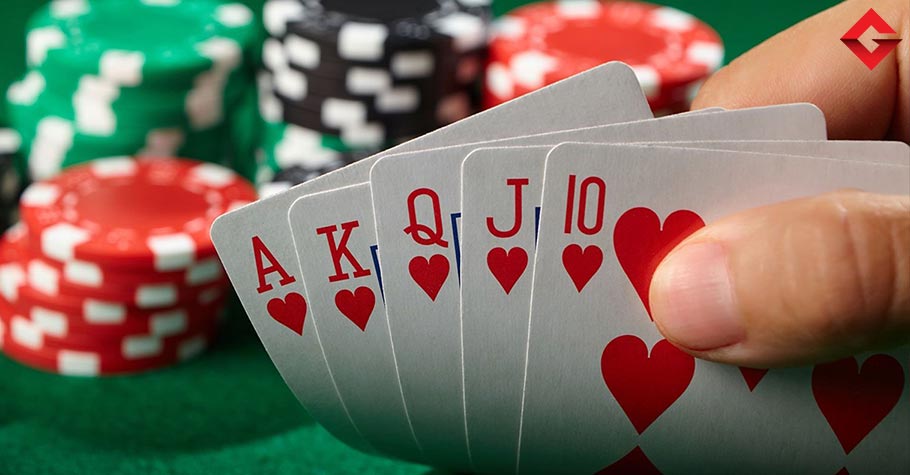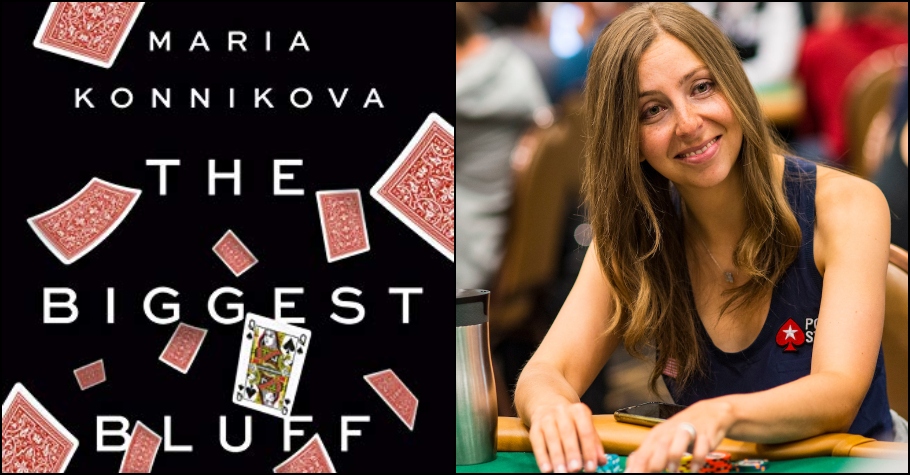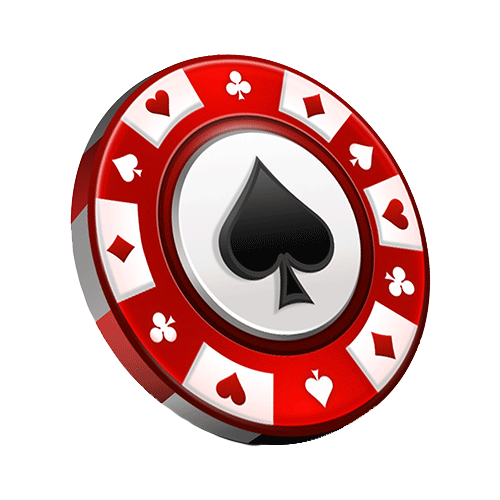 Poker
Poker
Beyond The Bluff: The Psychological Intricacies Of Poker
At the poker table, each hand dealt is a fresh skirmish in an ongoing war of intellect and nerve. The clatter of chips and the flick of cards are the percussion to a mental symphony, where each player’s resolve is tested against the unpredictable tide of chance. Yet, it’s the strategic mastery and psychological endurance that crown the victors, far beyond the luck of any single draw. The game, at its core, is a dance of the mind, where success is less about the cards you’re dealt and more about the way you play them.
In this article, we’ll navigate the nuanced realms that define poker’s mental game. From the subtle art of strategy woven into every bet to the steeliness of emotional control that can make or break a champion, we’ll explore how the mind is calibrated to the frequency of victory. Moreover, we’ll understand how the wisdom of setting limits can be the linchpin for not just staying afloat but thriving in the tempest of this cerebral sport.
The Art of Strategy in Poker
Poker strategy serves as the compass guiding players through the shifting tides of each match. This complex approach merges the precision of mathematical odds with an astute interpretation of human psychology and the ability to seize the opportune moment. Skillful players deploy their techniques to orchestrate the game’s rhythm, steer the course of action, and, ultimately, clinch the pot.
Dissecting the Strategy Playbook
Let’s have a look at some of the most popular plays in poker:
Bluffing and Semi-Bluffing:
- Bluffing represents betting strongly on a weak hand to induce folds.
- Semi-bluffing involves betting on a drawing hand that has the potential to improve.
Slow Playing:
- Entails playing a strong hand passively to disguise its strength and lure opponents into the pot.
- Can be risky but highly rewarding if it entices opponents to commit more chips.
Check-Raise:
- Involves checking on an opponent with the intention of raising after their bet.
- Serves to increase the pot value with a strong hand or can be used as a bluff.
Positional Play:
- Capitalises on the player’s position at the table relative to the dealer.
- Offers the advantage of acting last and gathering more information from opponents’ actions.
Floating:
- Calling a bet with the intention to take away the pot on a later street.
- Relies on reading the opponent’s weak bet and taking advantage with a strong play later.
Set Mining:
- Entails playing low to middle pocket pairs with the aim of hitting a set on the flop.
- It’s a low-risk strategy designed to win big pots against unsuspecting opponents.
Multi-Level Thinking:
- Requires considering what you have, what the opponent thinks you have, and what the opponent thinks you think they have.
- This deep psychological warfare involves anticipating opponents’ strategies and planning several moves ahead.
ALSO READ: Dominating The Field: Strategies For Excelling In Poker Bounty Tournaments
The Mental Gymnastics of Strategy Adaptation
Flexibility in poker strategy is akin to mental ballet, where agility and adaptability reign supreme. The capacity to alter one’s game plan not only confounds opponents but also shields one’s own vulnerabilities. It requires:
- Assessment of Table Dynamics: Reading the room and understanding shifts in play style and momentum.
- Self-Reflection: Honest self-evaluation to recognise personal patterns that opponents may exploit.
- Learning from Mistakes: Using each hand as a lesson for future strategies, even in defeat.
- Situational Awareness: Identifying the most opportune moments to change gears and seize control.
Emotional Control and its Impact on Decision-Making
Riding the rollercoaster of poker’s fortunes demands a steadfast heart and an even keel. In the push and pull of the game, the true competitor understands that emotional equilibrium can be the bulwark against the caprices of chance.
Understanding ‘Tilt’ and Its Consequences
‘Tilt’ is the nemesis lurking in the shadows for every poker player, the point where frustration tips the scales and clouds judgement. It’s crucial to recognise the early signs – perhaps a surge of frustration or a pang of desperation – because once it takes hold, it can spiral into a series of costly mistakes.
Understanding the triggers and personal indicators of tilt is the first defense against this formidable adversary. It’s a psychological duel to remain objective and keep on making decisions based on logic rather than emotion – which is often easier said than done.
Techniques for Sustaining Emotional Balance
Poker faces aren’t just for concealing a hand; they reflect a serene mind in the throes of pressure. Strategies to maintain this serenity range from breathing exercises to pausing for a moment of introspection between hands.
Players might adopt mindfulness practices or even engage in brief physical exercises to dissipate tension. Every partaker must find their own ritual of calm – some sort of a personal formula to still the inner storm and return to the table with undiminished clarity.
Emotional Intelligence and Deceptive Play
On the flip side, the ability to read the emotional currents at the table can become an arsenal in itself. Emotional intelligence allows a player to discern bluffs, seize on opponents’ hesitations, and act with confidence. Beyond maintaining one’s composure, it’s about turning the table on its head and using psychological insight to unsettle opponents.
The Importance of Setting Limits
As in all facets of life, boundaries are indispensable. In poker, they serve as psychological guardrails, ensuring that players engage with the game responsibly and sustainably.
When a player sets a limit, they are not just creating a line not to cross; they are acknowledging the power of the game and their own vulnerabilities. It’s a commitment to oneself, a rule set in the stone of rational thought before the siren song of the game can cloud judgement. This self-imposed discipline becomes even more crucial in environments such as casinos not on GamStop, which applies especially to poker players in the UK.
Here, the absence of certain external regulatory boundaries heightens the importance of personal limit-setting. Players at these venues enjoy a wider array of freedoms (in the form of more game variations, payment methods, etc.), and with that freedom comes the need for an enhanced level of self-regulation.
The psychology behind limit-setting can also act as a strategic tool. Players who set and adhere to limits often find they play more thoughtfully, making calculated decisions rather than succumbing to the heat of the moment.
This deliberate approach can lead to a more focused and, often, more successful poker experience. Conversely, those who fail to set or maintain boundaries might find themselves on a slippery slope, where one ill-considered wager can cascade into a torrent of missteps.
For more news and updates, keep reading Gutshot Magazine or follow us on our social media handles. We are present on Facebook, Instagram, Twitter, and Telegram.


Gutshot Magazine is India’s leading real money gaming magazine that covers news, updates, previews, highlights, features and much more across verticals like poker, rummy, and fantasy sports. Our rich history that has spanned over a decade now, Gutshot Magazine has always tied up with events and tournaments that have helped push the awareness of skill gaming in the country. If you are looking for the latest updates across real money gaming, then you have arrived at the perfect destination.
More News
Top 15 Poker Rooms
-
WPT Global
Grab your welcome offer
Offer: 100% of your deposit back up to $3,000 Register -
PokerDangal
Sign up with code GUTSHOT1
Offer: Get 100% GST discount on deposits Register -
Natural8 India
Sign-up with Gutshot
Offer: Get extra 28% on all deposits Register -
Spartan Poker
Sign-up with referral code AFFGSMAG
Offer: FTD 50% Bonus Money up to ₹20K. Deposit code ‘ALLIN50’ Register -
Junglee Poker
Sign-up and get bonus
Offer: Up to ₹50,000* Register -
Calling Station
Sign-up with promo code 'AFFCSGUT'
Offer: 30% FTD bonus with code FTD30 Register -
WinZo Poker
Daily Winnings Up To ₹40 Crore!
Offer: Get ₹550 Joining Bonus For Free Register -
Stake Poker
Welcome bonus
Offer: 200% up to ₹120,000 Register
Newsletter
Thank you for subscribing to our newsletter.
This will close in 20 seconds

























